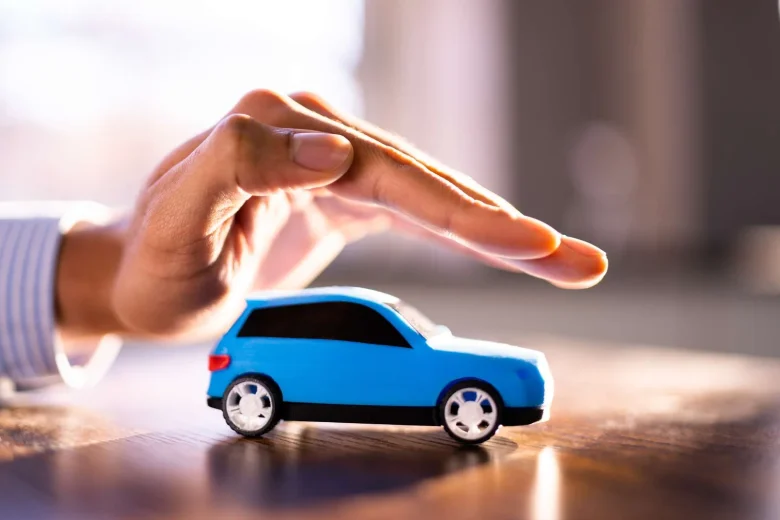Getting your driver’s license for the first time is a major milestone. It symbolizes freedom, independence, and the opportunity to drive freely. But with this new privilege comes new responsibilities, and one of the most important is securing car insurance. For many new drivers, the world of insurance policies, premiums, and deductibles can seem confusing. This guide delves into the fundamentals of car insurance, providing you with the knowledge you need to secure coverage and drive with assurance.
Introduction to Car Insurance
At its core, car insurance is a contract between you and an insurance company. You agree to pay a regular fee, known as a premium, and in return, the company agrees to pay for specific car-related financial losses. Think of it as a financial safety net. If you get into an accident, experience theft, or cause damage to someone else’s property with your vehicle, your insurance policy can help cover the costs. This safeguards you from bearing the full financial burden of costly repairs or medical bills.
Why Car Insurance is Essential for New Drivers
Aside from being a legal requirement in nearly every state, car insurance is particularly important for new drivers. Statistically, inexperienced drivers are at a higher risk of being involved in accidents. Without insurance, the financial consequences of a collision can be devastating, potentially leading to thousands of dollars in debt. Having the right coverage protects not only your finances but also provides peace of mind. It allows you to focus on developing your driving skills, knowing you have a backup plan if something unexpected happens.
Types of Car Insurance Coverage
Car insurance isn’t a one-size-fits-all product. Policies have various coverage types, and you can often choose what to include based on your needs and budget. The most common types include
- Liability Coverage: This type of insurance is the most basic and legally required coverage. It pays for the bodily injury and property damage you cause others in an accident.
- Collision Coverage: This type of protection covers damage to your car from a collision with another vehicle or an object, regardless of who is at fault.
- Comprehensive Coverage: This type of coverage protects your car from non-collision events, such as theft, vandalism, fire, or weather-related damage.
- Personal Injury Protection (PIP) or Medical Payments (MedPay): This type of insurance covers medical expenses for you and your passengers after an accident, no matter who is at fault.
Factors Affecting Car Insurance Premiums
Insurance companies use several factors to determine the cost of your premium. For first-time drivers, age and lack of driving history are significant factors, often leading to higher rates. Other elements that influence your premium include the type of car you drive (newer, more expensive cars cost more to insure), where you live (urban areas with more traffic usually have higher rates), and your driving record (tickets and accidents will increase your costs). The coverage types and limits you select will also directly impact your final price.
Tips for First-Time Drivers to Save on Car Insurance
While premiums for new drivers can be high, there are several ways to lower the cost. Many insurers offer discounts for excellent students who maintain a certain GPA. Completing a certified defensive driving course can also result in a discount. When choosing a car, opting for a model with a high safety rating and lower repair costs can help reduce your premium. Finally, shopping around and comparing quotes from multiple insurance companies is one of the best ways to find an affordable rate.
Understanding Deductibles and Coverage Limits
Two key terms to understand in any policy are “deductible” and “coverage limit.” A deductible is the amount of money you have to pay out of pocket before your insurance coverage kicks in. For example, if you have a $500 deductible and your car sustains $2,000 in damage, you pay the first $500, and the insurance company covers the remaining $1,500. A coverage limit is the maximum amount your insurer will pay for a specific type of claim. Choosing a higher deductible can lower your premium, but you need to be certain you can afford that amount if you need to file a claim.
Your Path to Protected Driving
Navigating the world of car insurance for the first time can feel overwhelming, but it’s a critical step in your journey as a driver. By understanding the basic types of coverage, the factors that affect your rates, and the ways you can save, you can make an informed decision that fits your needs and budget. Taking the time to find the right policy will provide the financial protection and peace of mind you need to fully enjoy the freedom of the road.
FAQs
1. Why is car insurance pricier for first-time drivers?
Insurance premiums are based on risk. Statistically, new drivers, especially teenagers, have a higher rate of accidents than more experienced drivers. Insurance companies offset this increased risk by charging higher premiums.
2. Can I be on my parents’ car insurance policy?
Yes, in most cases, you can remain on your parents’ car insurance policy as long as you live at home or are a dependent student away at college. This is often the most affordable option for young, first-time drivers.
3. What is the minimum car insurance I need?
The minimum requirement varies by state, but it typically includes liability coverage for bodily injury and property damage. While meeting the minimum is necessary, it often provides only basic protection, so you may want to consider additional coverage.
4. How can I get the best deal on car insurance?
To get the best deal, compare quotes from at least three different insurance companies. Also, ask about available discounts, such as those for outstanding students, safe drivers, or those who have completed a defensive driving course.
5. What happens if I drive without insurance?
Driving without insurance is illegal and carries serious penalties. Depending on the state, consequences can include fines, suspension of your driver’s license and vehicle registration, and even jail time. If you cause an accident, you would be personally responsible for all damages.




